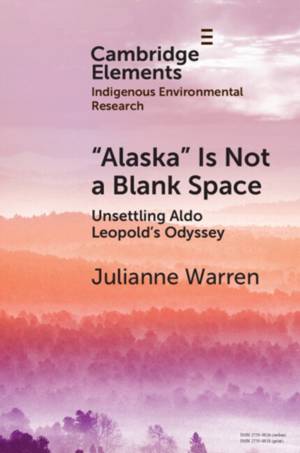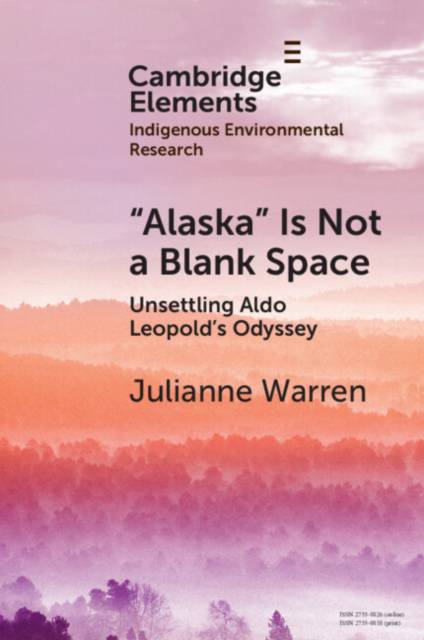
Bedankt voor het vertrouwen het afgelopen jaar! Om jou te bedanken bieden we GRATIS verzending (in België) aan op alles gedurende de hele maand januari.
- Afhalen na 1 uur in een winkel met voorraad
- In januari gratis thuislevering in België
- Ruim aanbod met 7 miljoen producten
Bedankt voor het vertrouwen het afgelopen jaar! Om jou te bedanken bieden we GRATIS verzending (in België) aan op alles gedurende de hele maand januari.
- Afhalen na 1 uur in een winkel met voorraad
- In januari gratis thuislevering in België
- Ruim aanbod met 7 miljoen producten
Zoeken
€ 24,45
+ 48 punten
Uitvoering
Omschrijving
This Element supports Gwich'in, Iñupiat, and all Alaska Natives' collective continuance and reparative justice from the perspective of a settler in the traditional territories of lower Tanana Dene Peoples. It stands with Alaska Natives' recovering and safe-keeping: kinships obstructed by settler-colonialism; ontologies and languages inseparable from land-relations and incommensurable with English-language perspectives; and epistemologies not beholden to any colonialist standard. These rights and responsibilities clash with Leopoldian conservation narratives still shaping mind-sets and institutions that eliminate Indigenous Peoples by telling bad history and by presuming entitlements to lands and norm-making authority. It models an interlocking method and methodology - surfacing white supremacist settler-colonialist assumptions and structures of Leopoldian conservation narratives - that may be adapted to critique other problematic legacies. It offers a pra xis of anti-colonialist, anti-racist, liberatory environmental-narrative critical-assessment centering Indigenous experts and values, including consent, diplomacy, and intergenerational respect needed for stable coalitions-making for climate and environmental justice.
Specificaties
Betrokkenen
- Auteur(s):
- Uitgeverij:
Inhoud
- Aantal bladzijden:
- 132
- Taal:
- Engels
- Reeks:
Eigenschappen
- Productcode (EAN):
- 9781009384759
- Verschijningsdatum:
- 25/09/2025
- Uitvoering:
- Paperback
- Formaat:
- Trade paperback (VS)
- Afmetingen:
- 152 mm x 229 mm
- Gewicht:
- 190 g

Alleen bij Standaard Boekhandel
+ 48 punten op je klantenkaart van Standaard Boekhandel
Beoordelingen
We publiceren alleen reviews die voldoen aan de voorwaarden voor reviews. Bekijk onze voorwaarden voor reviews.









